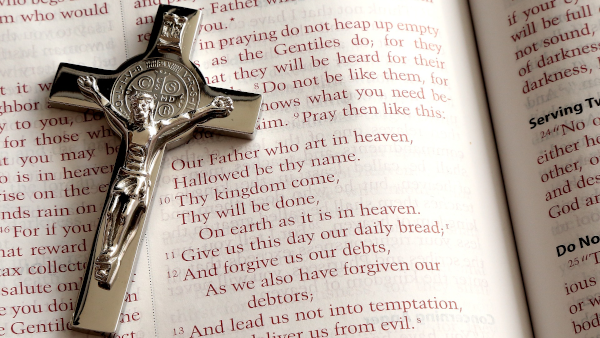Thursday, June 18, 2020 - Eleventh week of Ordinary Time - Gospel of Jesus Christ according to Saint Matthew 6, 7-15 - You have received a Spirit who makes you sons; in him we cry "Abba", Father.
How can we pray? Such is Jesus' teaching, a prayer is not evaluated by the number of words but by the sincerity of the intention. God already knows what's in our hearts, but what He needs is for us to speak to Him, as Jesus said, "Your Father knows what you need, even before you ask for it." It would be wrong to say, "He already knows and I don't need to talk to Him anymore" and wait. It's better to tell Him how we feel. Once again, prayer is a means to meet God and to be fully united to Him. This prayer was taught to us first and we know it only too well.
One of the originality of this prayer is the absence of the "I", the "me", the "my/himself"; instead we speak as "we", "our", i.e. a prayer that is not self-centred, but a prayer that is open to others. Even when recited alone, it is done in communion with others, and the first part is addressed to God the Father, to give Him glory and praise. It is only in the second part that we speak of the needs of the one who prays. Praying, then, is not only begging. Our prayers are often only requests! Moreover, it is not appropriate to cultivate begging, let us only ask for what is necessary: "Give us today our daily bread" and not our weekly bread, or even worse our monthly/annual bread.
Emphasis is also placed on mutual forgiveness in order to obtain God's forgiveness. However, it is often difficult for us to forgive, because it is to be forgiven that prevails in us. Forgiving each other is a condition for obtaining God's forgiveness, and only by forgiving sincerely will we find true peace.
Therefore, the "Our Father" taught here by Jesus is the prayer par excellence for every child of God. May its recitation be for us not merely a routine habit, but a sincere and profound intention. Amen.








